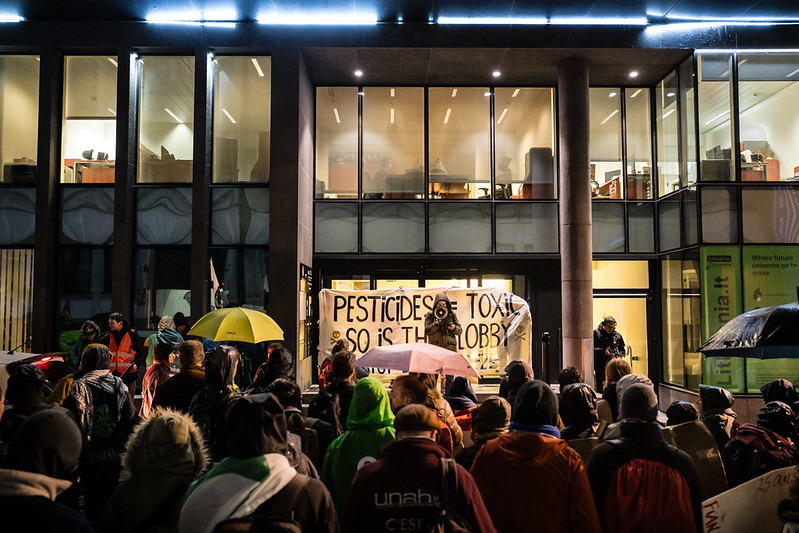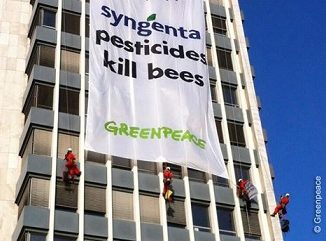
Despite suffering an outright rejection by the European Parliament, the EU’s plan to slash the use and risk of pesticides in half by 2030 may not be a dead duck just yet as EU ministers set out plans to continue work on their side of the file. But how would that work in practice? Natasha Foote brings you the latest on the file.
The contentious sustainable use of pesticides regulation (SUR) proposal aims to slash the use and risk of pesticides in half by 2030, as set out in the EU’s flagship food policy, the Farm to Fork strategy.
But it seemed it was game over for the file after it was rejected outright by the European Parliament back in November without the possibility of being sent back to the Parliament’s environment committee – who led work on the file – for a rehashing.
While not unheard of, the move is exceedingly rare and immediately left stakeholders wondering whether this means the file is dead in the water.
Asked by ARC, sources explained at the time that the two viable options are either a decision from the Commission to withdraw its own proposal, or a decision by the EU ministers to continue working on the file regardless of the outcome of the European Parliament’s vote.
But after the Commission gave no indication that it was planning to shut down the file once and for all, the ball is in EU agriculture ministers’ court – and it seems like they plan to push ahead on the contentious file, according to Spanish agriculture minister Luis Planas.
“We have to continue to work,” Planas – who currently heads the AGRIFISH Council – told journalists at a press conference following a meeting of EU agriculture ministers on Monday (11 December).
“I remain [an] optimist, and I think if we can make progress before the European elections, excellent. If not, we will continue working because […] we have to confront the situation,” he added.
And the idea garnered widespread support among EU ministers, who pushed for the Council to conclude their side of the deal during Monday’s (11 December) meeting in Brussels, with many expressing regret that the file hit a wall with their counterparts over in the Parliament.
So what shape would that take?
According to Planas, the Spanish Presidency has been working hard to find a “bridge between the diverging views of delegations” on the most controversial issues of the proposal.
Most notably, this includes the restrictions in the application of pesticides in the so-called ‘sensitive areas’ and national pesticide reduction targets.
In efforts to address this, the Presidency has proposed a new definition of sensitive areas broken down into three categories, alongside the measures to be applied in each of these, as well as a simplified procedure for derogations.
In this way, the Presidency proposal aims to “reduce the overall administrative burden” that may result from application of the regulation for the sensitive areas, Planas explained.
Meanwhile, for the reduction targets, the compromise proposal includes mandatory 50% reduction targets at EU level, but stops short of national targets.
“This means that we no longer talk about national reduction targets, but quantitative objectives, targets, measures and timetables that are national in nature and contribute to the reduction in the use of plant protection products,” Planas said.
The text also provides for the possibility for the Commission to make recommendations to member states to adjust the measures taken at national level so that the EU 50% reduction targets can be collectively achieved, he added.
The news is unlikely to please green campaign groups, who have long warned that such a move would prove “catastrophic”.
“Experience teaches that, without a result-based approach and clear obligations and rules for member states, no progress in pesticide reduction will take place,” the Pesticide Action Network Europe previously warned in a statement.
The proposal also focuses on the use of technology, specifically drones, for pesticide application as a way to achieve the necessary reductions, and replaces the concept of independent adviser with that of impartial adviser.
Reality check
However, even in the case that ministers manage to rally enough support for a general position on the file, this will still need to win a greenlight from the Parliament.
The usual back-and-forth of inter-institutional ‘trilogues’ – negotiations between the two lawmakers and the European Commission – would then be skipped. Instead, the Council’s text would then provide the basis for a second reading in the Parliament.
This would then have to be adopted unanimously – a fairly unlikely prospect given the result of the last plenary vote.
During the meeting, Planas himself acknowledged that, despite his best hopes, “the future of this file is rather uncertain at this stage” after the Parliament’s rejection.
Since Monday’s agriculture ministers’ meeting was the last one under the Spanish presidency, the baton will pass to the Belgians to see if they are able to pull together a position ahead of June’s EU elections.
Emphasising he hopes the Belgians can build on the work already done, Planas noted that this all “depends on the political context”.
Meanwhile, despite the considerable concessions set out in the Presidency text, it still does not go far enough for some member states, including Italy and France, the latter of whom said it does not see the possibility of reaching a general agreement by the end of the year.
More
Brussels Roundup – Stasis for Animals, Tightrope for new GMOs
Pesticides Proposal Rejected in Plenary, Next Steps a SUR-prise
Commission to Renew Glyphosate for 10 years after Member States Fail to Reach Qualified Majority
SURge of Amendments to Pesticide Regulation Before Plenary Vote
Pesticide Regulation Progresses to Plenary Following Environment Committee Vote





